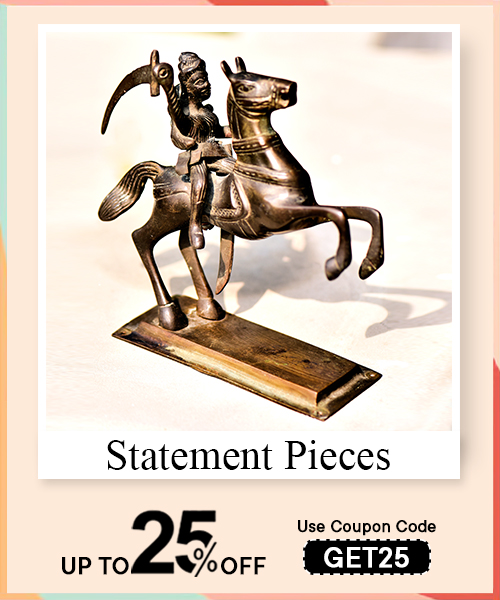Raksha Bandhan is an important festival celebrated across India that celebrates the bond between brothers and sisters. It is celebrated on the full moon day of the Shravan month (or Shravan Poornima). The same also coincides with the Upa-karma or Avani Avittom in South India. The festival is observed across India and is also celebrated by the Indian Diaspora around the world.
Apart from being called Rakhi, or Raksha Bandhan, the festival is also known as, Rakhi Poornima, Kajari Poornima, and Nariyal Poornima, etc.
Raksha Bandhan in 2025 will be celebrated on Saturday, 9th August. A festival rooted in the beautiful bond between siblings, Raksha Bandhan brings with it both a sense of nostalgia and joy. This annual occasion is a reminder of the unwavering commitment and love shared between brothers and sisters. The rituals are simple yet deeply symbolic. Sisters tie a rakhi (a sacred thread) around their brother's wrist, while brothers offer gifts and protection in return.
In 2025, this celebration will take place on a Saturday, offering the perfect weekend atmosphere to honor the tradition. Families will gather, reaffirming ties, not only through the act of tying the rakhi but through the heartfelt emotions that accompany this celebration of siblinghood.
For many, Raksha Bandhan is not just a festival, but a time to reflect on the significance of these relationships, of shared memories, promises, and the bond that remains, no matter the distance. The day will surely be filled with laughter, love, and cherished moments, weaving together the fabric of familial connection, one thread at a time.
On the occasion of the festival, sisters apply a tilak on their brother's forehead. Then they tie the sacred thread 'Rakhi' on their brother's wrist. They also do Aarti, chant religious shlokas and pray for their brother's long life and good health.
The Rakhi thread itself has become an important symbol of the festival. It is often decorated with colourful threads, beads, and other embellishments. The thread also represents love and blessings, while the day Raksha Bandhan means - Bond of protection.
A similar Rakhi called Lumba is tied to a sister-in-law's wrist. The same is available in unique styles, colours and designs.
Read More : International Day of Light
The exchange of gifts is also an essential part of the festival. Brothers often give their sisters gifts, such as clothing, jewellery, or sweets. The brothers also offer a nek (monetary gift) and vow to protect them.
Many people tie a Rakhi on the Tulsi or Peepal plant before tieing it to their brother's hand. It is believed that it brings the protection of nature. This is called Vriksha Bandhan.

The significance of Raksha Bandhan lies in its message of peace, love, unity, and universal brotherhood.
It also signifies and celebrates the strong bond between siblings and the importance of helping and caring for each other.
The Raksha Bandhan thread is believed to have sacred powers that protect the siblings from all kinds of harm and evil forces. It is also a way of expressing gratitude to brothers for their love and support.
Read More : Trendy wishes for Diwali
Sometimes, the Raksha Bandhan thread is tied by a sister to her brother-in-law, symbolising the bond between a sister and her brother's family. This tradition fosters a sense of togetherness and harmony within families and communities.
However, in recent times, the significance of Rakhi has transcended beyond the boundaries of religion and culture. Today, people of all faiths and backgrounds have embraced this festival. Many use this as a symbol and message of love and unity.
This day has become a symbol of India's rich cultural heritage and a way of promoting unity, social harmony, peace and brotherhood. The festival remains an integral part of India's rich cultural identity. It also serves as a reminder of the importance of love and respect in our relationships.
The tradition of tying the Rakhi dates back to ancient times, with rich references in Hindu mythology.
According to Hindu mythology, there are many stories related to Raksha Bandhan. It is believed that Santoshi Maa tied a rakhi to Lord Ganesha, the elephant-headed god. It is said that this led to the popularisation of Raksha Bandhan as a festival that celebrates the bond between brothers and sisters.
Other significant references to the Raksha Bandhan festival are -
According to Bhavishya Purana, Lord Indra (King of all Devas) was advised by the Guru Brihaspati to tie Rakhi as a symbol of protection against demons and other negative forces. During this time, the gods and demons were engaged in a fierce battle, and Lord Indra was on the verge of accepting defeat. He tied the sacred thread with the help of his consort - Sachi Devi. This brought him strength and helped him emerge victorious.
Another mythological story tells the tale of the sea God Varuna. It is believed that fishermen worship him on the day of Raksha Bandhan. For this purpose, special fairs, coconut offerings, ritual bathing, etc., were observed. Later, Rakhi and coconut (Nariyal) were set afloat in the sea. This gave the festival the name of - Nariyal Poornima.
Another famous story states that King Bali, a powerful demon king, conquered the three worlds. But Goddess Laxmi, the goddess of wealth and abundance, wanted to return to her abode in heaven.
She disguised herself as a poor woman; she visited King Bali and tied a sacred thread on his wrist. She later revealed her true identity and asked him to let Her go.
King Bali was so touched by her gesture that he granted her the freedom to leave and always promised to protect her.
The festival hence reflects the importance of family, values, bonding, and harmony.
Throughout history, Raksha Bandhan has played a significant role in fostering strong bonds between siblings and promoting unity and harmony among people. The festival has transcended religious and regional boundaries and is celebrated by people of all faiths in India.
One of the most famous historical and mythological stories is from Mahabharata -
The story goes that Draupadi, the wife of the Pandavas, had torn a piece of cloth from her saree to bandage Lord Krishna's finger when he had cut it while handling sugarcane.
Her gesture so touched Lord Krishna that he always promised to protect her. Later, when the Kauravas tried to disrobe Draupadi, she prayed to Lord Krishna, who rescued and defended her honour. This incident is said to have given birth to the tradition of tying a rakhi, or sacred thread, on a brother's wrist by his sister, symbolising her love and protection.
This story is also an example of the incredible bond between siblings. It also underlines the importance of standing up for each other during thick and thin.
Similarly, other historical tales narrating the significance of Raksha Bandhan are -
A famous legend associated with Raksha Bandhan is that of Queen Karnavati of Chittor. In the 16th century, when her kingdom was attacked by Bahadur Shah Zafar and the Sultan of Gujarat, Karnavati sent a rakhi to the Mughal emperor Humayun, seeking his protection. Touched by the gesture, Humayun immediately set out with his army to defend Chittor.
It is believed that Alexander the Great was defeated by King Purushottam from Punjab. The wife of Alexander sent a Rakhi to the latter to protect her husband's life. This saved the life of the great ruler.
The Raksha Bandhan festival has evolved, but its message remains the same - to promote the values of love and protection.
The festival today has social and cultural significance. It promotes gender equality and highlights the importance of women in society. It also emphasises the need for men to respect and protect the crucial women in their lives. It also serves as a reminder of the importance of family bonds and the need for emotional support in today's fast-paced and stressful world. The festival encourages siblings to take time out of their busy lives to reconnect and strengthen their relationships, which can positively impact their overall well-being.
The festival emphasises the role of brothers as protectors and caregivers and encourages sisters to trust and rely on their brothers for support. In a society where gender roles are often rigidly defined, Raksha Bandhan serves as a reminder of the importance of breaking down gender barriers and promoting equality and respect. Similarly, it is also a time for forgiveness and reconciliation. It is a time for families to put aside their differences and unite as a strong unit.
Many tie Rakhi to priests for protection. It also helps to bring the blessings of Gods and Goddesses while promoting religious sensitivity and happiness. People also tie Rakhi on the wrists of soldiers and other public servants, showing their gratitude for their untiring service and dedication. This act is a way of acknowledging the sacrifices that these individuals make for their motherland and community.
In recent years, Raksha Bandhan has become a global festival. People of Indian origin celebrate the festival in countries worldwide, bringing together diverse communities and promoting cultural exchange. This has helped to spread the message of love, unity, and brotherhood beyond India's borders. Further, individuals from different religions and communities have started tying this sacred thread of love to each other as a symbol of unity and brotherhood. This is especially relevant in a diverse and culturally rich society like India.
Read More : Happy Diwali: Best Wishes, Images, and Messages to Share with Your Loved Ones on Deepavali
However, many believe that Raksha Bandhan has become a highly commercialised festival, with the exchange of high-end designer gifts and pre-packaged sweets. Despite this dynamic cultural shift, the underlying message of love, protection, and respect remains the same.
Raksha Bandhan stands as an amazing and interesting example of the tale of love and care. It also conveys the message of brotherhood and universal tolerance. This festival is considered a time for family values, bonding and purity of thoughts.















